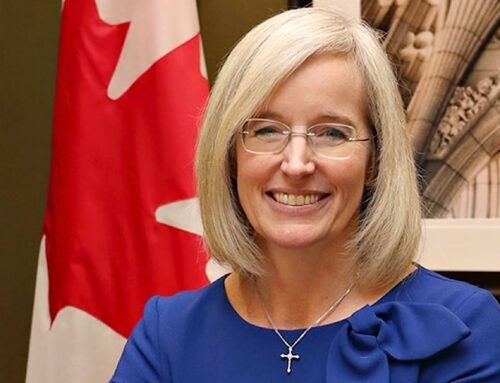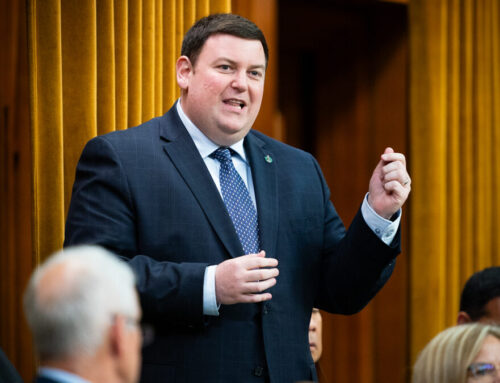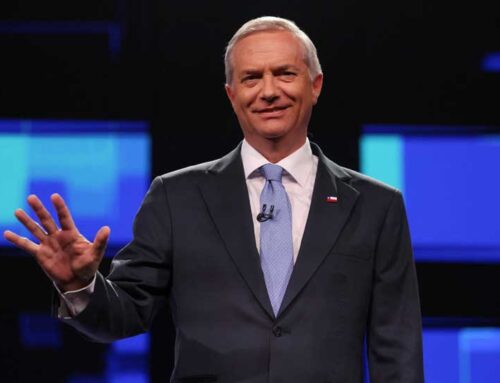The Liberal goes all in with his dictatorial position
On May 7, Justin Trudeau told reporters that pro-lifers literally need not apply to become Liberal Party candidates in future elections. He said he was imposing a new rule on the party that would ban individuals who hold pro-life views from seeking the party’s nomination for MP, but his dictate would exempt sitting pro-life MPs as they are scrutinized under a different process. Under his rule the party’s Green Light Committee he set up to okay candidates in open nomination meetings or those challenging incumbents would simply disqualify any person holding pro-life views.
Catholic bishops have spoken out against Trudeau’s position, with Toronto Cardinal Thomas Collins saying that it effectively disqualifies many Christians from running for office under the Liberal banner and Ottawa Archbishop Terrence Prendergast stating that being pro-abortion is incompatible with being a Catholic in good standing, which Trudeau maintains he is.
Trudeau later clarified that he was insisting that all Liberal candidates commit to upholding “a woman’s right to choose” abortion, which he maintains is protected by the Charter of Rights and Freedoms. He said on the issue, the Liberals had to “speak with one voice.”
Some pro-lifers were hopeful that the Liberal leader would permit the handful of current sitting pro-life MPs to vote their conscience. Jim Hughes, national president of Campaign Life Coalition, issued a statement saying that pro-lifers could no longer support the Liberal Party due to its stringent pro-abortion position but that it would still work with pro-life Liberal MPs.
On June 18, Trudeau once again clarified what his position meant: sitting pro-life MPs like Lawrence MacAulay and John MacKay would have to violate their conscience and vote with the party if the abortion issue ever came before Parliament. MacAulay had, just days before, told the Charlottetown Guardian that he was still free to vote his conscience, but told the CBC that after meeting with Trudeau on June 18, he was going to toe the party line.
This news broke a week after Justin Trudeau told reporters that “a room full of predominantly male legislators” cannot tell women what to do when it comes to abortion. It was viewed as yet another unnecessary foray into the abortion controversy and was therefore an unforced error.
Similarly, at the end of May, Justin Trudeau was asked about sex-selective abortions and he refused to condemn abortion for the purpose of eliminating unborn baby girls, saying that the decision to do so is between “a woman and the health professionals that she encounters.” He stressed: “My position has been very clear. The Liberal Party is the party standing up for people’s rights. And the Liberal Party will always be the party of the Charter. So we will continue to stand up for people’s rights and not legislate them away.”
However, the next day a party spokesman emailed the Toronto Sun clarifying: “Mr. Trudeau and the Liberal Party do not condone sex-selective abortion … the Canadian Medical Association (has) stated clearly they do not condone sex-selective abortion and we of course support that.” Except as Faye Sonier of the Evangelical Fellowship of Canada observed in a blog post for ProWomanProLife, “when you give a blanket endorsement of ‘a woman’s right to choose,’ then you can’t condemn gendercide.”
Does Trudeau’s abortion extremism hurt the Liberals? The polls give mixed signals.
On May 28, the Toronto Star reported, “Liberal Leader Justin Trudeau’s restrictions on candidates with pro-life views appears to have peeled off some of his support among the general public, a new Forum Research poll has found.” The Forum Research poll indicated that in the weeks following Trudeau’s announcement on the change in abortion policy, the Liberal Party lost some support in its national polls, declining from 39 per cent in April to 36 per cent in late May. Forum Research president Lorne Bozinoff was quoted in the Star saying, “It appears Justin Trudeau’s restrictions on Liberal candidates with pro-life views has peeled off a small but important tranche of support for not only him, but, incrementally, his party.” He explained, “I’m not sure that there is a corresponding upside, in that those who support pro-choice views are already in his court.”
But as polling analyst Eric Grenier observed at Huffington Post, Forum Research did not ask about abortion and that there was no way Bozinoff could know if the statistically insignificant decline in support was linked to the abortion issue or whether it was normal statistical variation from one poll to another.
More significantly, Ipsos Reid asked 1,008 Canadians about Trudeau requiring all future Liberal candidates to support “a woman’s right to choose.” Ipsos Reid found that fully 70 per cent of Canadians oppose the policy, with seven in ten respondents agreeing with the statement that “even as party leader, Justin Trudeau has no right to exclude potential candidates from running for the Liberal Party based on whether or not they are pro-choice.” Just 30 per cent agreed with the statement that “as party leader, Justin Trudeau has the right to decide if he only wants pro-choice candidates to run for the Liberals in the next election.” Trudeau’s position was unpopular despite the fact that just one third of respondents opposed the status quo of having no law on abortion and that a bare majority (52 per cent) do not think abortion should be restricted in any way. Furthermore, about a quarter (24 per cent) think abortion should be available in “certain” undefined “circumstances.” Just 32 per cent of respondents think the federal government should re-open the abortion issue while 52 per cent say there is no need to re-open the abortion debate.
While nearly half of respondents say that Trudeau’s position on abortion has no effect on their intent to vote or not vote for the Liberals in the next election, 27 per cent say they are less likely to vote Liberal because of Trudeau’s hard-line stance. In a close election, that could matter. The Ipsos Reid press release noted that “in the key battleground of Ontario” with its 106 seats (it will have 121 in the 2015 election), 31 per cent of Ontarians said they were less likely to vote Liberal as a result of Trudeau’s policy, while 19 per cent said they were more likely, “resulting in a -12 net impact on Ontarians’ likelihood to vote for the Liberals.” But in Quebec and British Columbia, the Liberals could see a tiny bump as a result of Trudeau’s commitment to abortion, with a net impact of +4 in Quebec and +5 in British Columbia, yet even in these provinces more than one in five respondents say they are less likely to vote Liberal.




